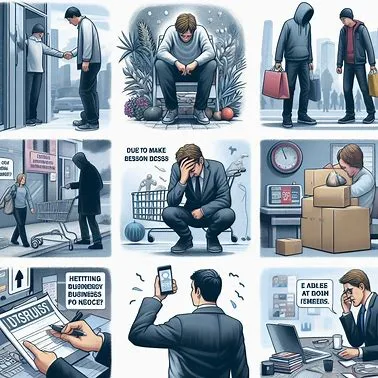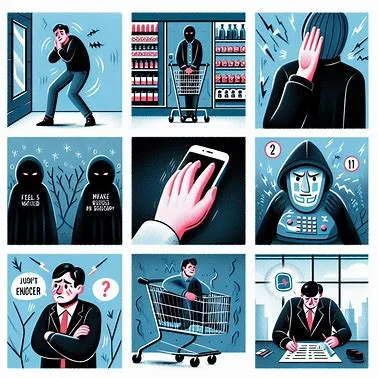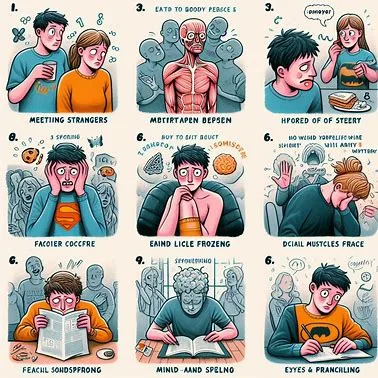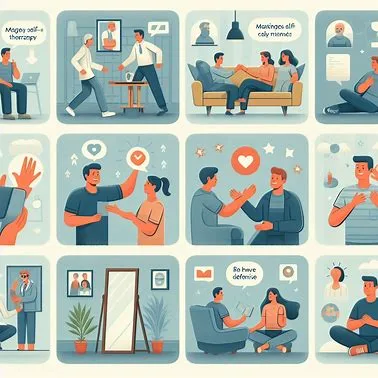A POV into social anxiety…
I would freeze up every time I had to meet some stranger.
I hate to stand in a queue in a grocery shop, I feel everybody is watching me.
My friend finds it difficult to walk down the street because she is afraid that everyone will notice her.
Another person finds it difficult to make business phone calls, as he thinks, he might be rejected.
One of the worst circumstances is meeting with people who are better in some way. Their anxiety level is very high when they are meeting bosses or authority people.
Going for a job interview is the most horrible experience for people with social fear. Due to excessive anxiety, they may get a lump in their throat and it is hard to speak. They forget what to say and they are sure they have said the wrong thing. They feel that they could do the job well only if they could avoid this interview.

What is social anxiety?
Social anxiety disorder is a type of anxiety disorder that refers to excessive emotional discomfort, fear, stress or worry in a social setting. This is also called social phobia. The more difficult part of this problem is that it does not come and go like other physical or social problems. If someone has social phobia, one day, they will always have it when they interact within society, unless they receive appropriate therapy.

What are the symptoms?
Everyone with social anxiety may have different symptoms, for example-
Some people suffering from social phobia may be afraid of meeting strangers.
Others may think that a particular part of their body is strange-looking and notice it.
Some cannot speak to authorities, their boss or supervisors. At such times, their facial muscles may freeze up, their minds become blank and their eyes wide.
Some may have anxiety, eating or drinking in public.
Still, others cannot write before others as they fear all are observing their handwriting and checking their spelling mistakes.
One thing that all people with social anxiety share is that they know that their fear or thoughts are irrational and no one is judging or observing them critically. Yet they continue to feel the same way.

The Root Cause of Social Fear
People who experience rejection, teasing, or humiliation in childhood lose their self-confidence and are more prone to social anxiety. In addition, other negative experiences in life such as trauma, bad interpersonal relations, and abuse have been especially noted as being associated with it.
Treatment- How can social anxiety be treated with therapy there is a better life for all people with social anxiety, but without therapy, social phobia is a torturous emotional problem. Cognitive Behavior therapy is highly successful in the treatment of social anxiety. In psychotherapy, we learn techniques to change our negative thoughts about ourselves. CBT produces long-lasting or even permanent relief for those, who are persistent and practise simple routines at home.
Let’s try to follow some simple rules to overcome social fear-
1-Talk therapy: practising in small groups or with your close friends, who encourage you
A- Try to make eye contact during conversation
B-Small talks
C-Asking questing
D-Start talking, taking a deep breath
Request your friends to take notice of your facial expressions, tone of voice and speed.
2- Practise—Practice speaking before a mirror before an interview, meeting or social gathering.
3-Meditation-By practising mindfulness and fostering self-awareness, we can learn to observe our thoughts, without judgement and reduce defensiveness around others. Meditation trains our minds to stay in the present moment. It encourages more positive social behaviour
4- Educate yourself on new social skills, it makes you feel confident. You also know about a topic to speak before others.
5-Follow a routine-Following a routine is especially important as it encourages self-regulation, makes us feel safe and increases our sense of self-control.
6-Family time -Spending time with our family develops confidence and a sense of being loved. We learn to express our feelings freely without hesitation It increases courage to face society.
Communicate -Have an honest communication about your fears with someone you trust and ask for their help. Talk to them regularly. If someone is struggling with social fear express your concern and reassure your support.
Discussing your fear with a therapist helps you to discover the root cause of your fear and the therapist may create a plan to overcome your anxiety and help you develop healthier habits to deal with your fear.


